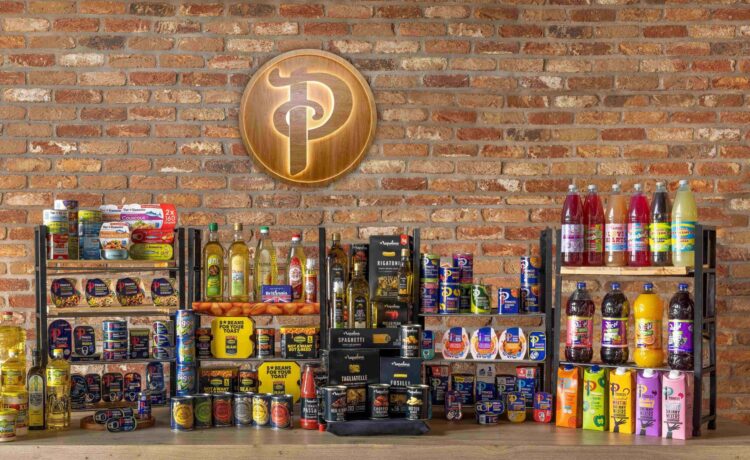Princes, the Liverpool-based foods group, has confirmed its intention to float on the London Stock Exchange.
It announced a proposal to float on October 3, 2025, in a move that could value the business at around £1.5bn.
Today (October 10) the group announced its intention to proceed with an initial public offering (IPO).
It said it intends to apply for admission of its ordinary shares to the equity shares category of the official list of the FCA and to trading on the main market of London Stock Exchange.
Princes revealed that the offer would be comprised of new ordinary shares to be issued by the company to raise net proceeds that support the group in further inorganic growth via acquisitions.
The final offer price in respect of the offer will be determined following a bookbuilding process. It is currently expected that trading will commence by the end of October.
The offer would be a targeted offering to certain institutional investors in the UK and elsewhere outside the US, as well as to ‘qualified institutional buyers’ (QIBs) in the US, and an offering to retail investors through Retail Book Limited in the UK only.
In connection with the offer, each of the company, its directors and existing shareholders are expected to agree to customary lock-up arrangements restricting the disposal of shares for a period of time following admission.
The company has engaged BNP Paribas, London Branch as sponsor and BNP PARIBAS, Coöperatieve Rabobank UA, Peel Hunt and UniCredit Bank GmbH, Milan Branch as joint global co-ordinators and joint bookrunners and Société Générale as joint bookrunner in the event that the offer proceeds.
The proposed flotation is following a recent trend of offering shares to the general public, rather than just institutional investors.
Dan Coatsworth, head of markets at Manchester-based investment platform, AJ Bell, explained: “This is significant for two reasons. First, it shows IPOs are no longer the domain of the elite; and second, history shows that some of the biggest initial gains sometimes come at the market open on the first day of dealing.
“Investors who buy at the IPO offer price stand to benefit from a potential day one ‘pop’ in the share price. Those who wait for the shares to start trading might find they miss the pop and must pay more than the IPO price.
“It’s also worth noting that stamp duty is not applicable when you buy shares under an IPO.
“Stamp duty on shares is a hot topic as the tax currently makes the UK stock market less competitive compared to many other countries which don’t charge it.”
He added: “There is talk that the UK government might grant a stamp duty holiday for the first two to three years of a company’s life on the UK stock market in a bid to provide a boost to London’s IPO market and encourage more new listings.
“In 2023, new listings, on average, started trading 10.5% above their IPO price, according to analysis by AJ Bell.
“That means someone who took part in the IPO could have made a decent return in a flash. In 2024, the average ‘pop’ from the IPO price to the first day opening price was 9.2%. The average is 7.2% so far in 2025, based on AJ Bell figures.
“IPOs are often priced 10% to 20% below their intrinsic value to help attract investors.
“The IPO pop that often happens when a company lists their shares is effectively the reward for taking the risk of backing an entity that has yet to deal with the trials and tribulations of being on the stock market.
“Being listed might raise a company’s profile, but it can also put pressure on management as their every move is watched by investors.
“In 2024, 12 out of 16 IPOs traded higher as soon as markets opened on their first day of dealing.
“Half of these stocks achieved double-digit pops, the highest being computer group Raspberry Pi whose shares started trading 28.6% above their IPO price.
“Notably, Raspberry Pi was among the select few stocks to include retail investors in its IPO offer.”
However, he cautioned: “Certain IPOs have fallen flat on their face, as Deliveroo backers found out the hard way. Deliveroo priced its IPO at 390p, but the stock opened 15.1% lower at 331p on the first day of dealings and then fell further.”


Royal Liver Building
Princes is based in the Royal Liver Building, which it acquired for £60m in July this year in a demonstration of its commitment to the city following its £700m takeover in July last year by Italian-based Newlat Food S.p.A from previous owner, Mitsubishi.
It employs around 400 staff at the iconic Grade I-listed Royal Liver Building.
Princes traces its roots back to 1880 in Liverpool, when ‘Simpson & Roberts & Co’ was established as an importer of canned food into the then thriving docks. In 1900 the business adopted the name Princes and the iconic brand has been a mainstay of British kitchens since.
It is now a key international platform in the UK and European food and beverage sector that generated £2.1bn pro-forma revenue in the year to December 31, 2024. It has leading positions in both branded and customer own brand products across its five business units: Foods; Fish; Italian; Oils; and Drinks.
The group’s branded product portfolio includes recognised brands such as Princes, Napolina, Branston, Batchelors, Flora, Crisp ‘N Dry, Delverde, Naked Noodle and Vier Diamanten.
It exports its products to more than 60 countries and has in excess of 8,000 customers globally across large food retailers, B2B partners and the foodservice industry.#
The group said its integrated model enables expansion into new categories and geographies, supports leading market positions, and maintains long term customer relationships.
It operates 23 production facilities across the UK, continental Europe and Mauritius. Significant capital expenditure has been invested into its production facilities, which has resulted in several of the group’s facilities having significant spare capacity for growth without requiring further capital investment.
The group has a further 21 warehouses and distribution centres and three offices across the UK, Poland and the Netherlands, with approximately 7,800 staff.
In the 12 months to December 31, 2024, the group generated pro forma adjusted EBITDA of £122.3m at a margin of six per cent. As a result of cost, commercial and operational synergies since its acquisition, the group has delivered pro forma adjusted EBITDA of £71m at a margin of 7.4% in the six months to June 30, 2025, on pro forma revenues of £964.2m.
Pre-tax profits for the 12 months to December 31, 2024, were £13.252m.



